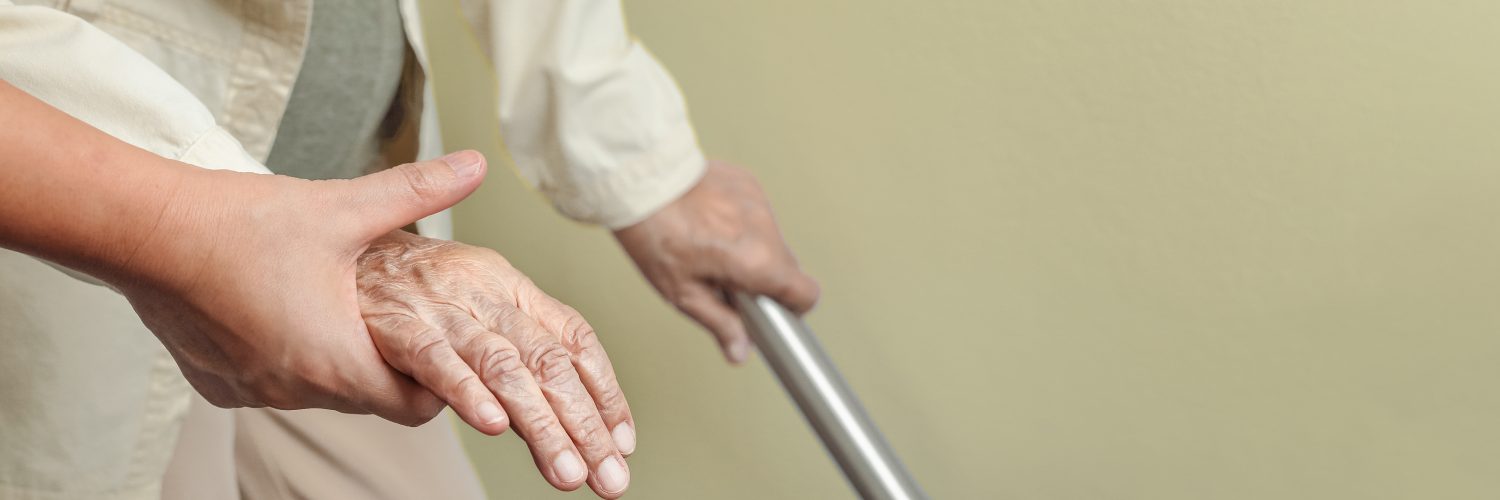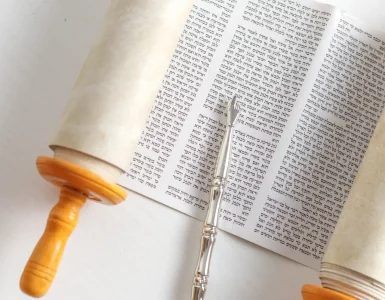The Golden Years – Part I: Introduction
“You shall rise before the aged and show deference to the sage; you shall fear your God: I am Hashem.” (Vayikra 19:32)
Over the coming weeks, we will explore an increasingly important topic: Zikna (old age). Medical advances in recent decades and increasing awareness of the importance of leading a healthy lifestyle have led to a consistent increase in life expectancy in the Western world. Both men and women live for longer and in better health.
This trend is even more pronounced in Israel. According to a report by the World Health Organization, in 2016, Israel was ranked eighth in the world in average life expectancy, with an average of 82.5 years, with women outliving men by almost two years. The statistical yearbook of the Myers-JDC-Brookdale Institute indicates that the life expectancy of Israelis at the age of 60 is 24.7 years – significantly higher than most other countries.
With each passing year, this phenomenon increases the proportion of elderly people in society. Even in Israel, where the population is particularly young due to high birth rates (relative to the rest of the Western world), the elderly population is growing rapidly.
This development has many far-reaching consequences. Governments, pension funds, and other economic entities take this data into account when planning and lobbying for legislation in areas such as retirement age, pension policy, pension plan structure, health insurance, and more.
It is not only government and industry that who need to reckon with this phenomenon. In the past, people lived most of their lives after their parents’ deaths, but today this has changed. Parents now live considerably longer, while the age at which people tend to bear children has remained relatively stable, resulting in many multi-generational families. This has posed a challenge for those in the “sandwich” generation who must raise their children while also caring for their aging parents.
Today, the elderly value their life differently than they did in the past, and the cultural attitude toward them has also changed. In previous generations, the elderly were expected to decrease their social, business, and public activity in anticipation of living the final chapter of their lives quietly and peacefully. In modern society, many seniors remain physically and mentally robust and continue to engage in meaningful activities and contribute to society. This change raises the need for governments and family members to provide the older generation with more areas of activity in which they can contribute, as well as appropriate cultural and leisure activities.
Honor and respect for the elderly is a hallmark of Judaism. The Torah commands, “You shall rise before the aged and show deference to the sage ” (Vayikra 19:32), which obligates us to treat the elderly with the same respect and appreciation as Torah scholars. Life experience grants a person an authentic and wiser perception of life, and this obligates the younger members of society to treat those with greater experience with deference and regard.
In several places, Chaza”l point out that the word “Zaken” is an acronym for “Zeh sheKana Chachma” – “one who has acquired wisdom”. This is almost explicitly stated in Sefer Iyov in the verse “In those who are aged there is wisdom, and in length of days there is understanding” (12:12).
Among the positive qualities that Sages attributed to the elderly are caution and the tendency to avoid reckless behavior. They have a good understanding of actions and their consequences. These qualities are a result of life experience, mellowing of the spirit, and maturing from the impetuousness of youth which leads to hasty acts that often lead to later regret.
The same concept is described by the Gemara (Megila 31b):
R’ Shimon ben Elazar says: If the elders tell you to destroy, but the youth tell you to build, destroy and do not build. This is because the destruction of the elders is in fact constructive, and the construction of the youth is in fact destructive. A way of recalling this concept is to consider Rechavam the son of Shlomo.
The Gemara provides an example of a person who wants to add another floor to his house. The elders recommend that he knock down the house and rebuild it more strongly so as to support the weight of the extra floor. The youth maintain that the house is strong enough as is, and the building of the extra floor can commence immediately.
Chaza”l recommend that he pay heed to the advice of the elders. Though they advise him to perform an ostensibly destructive act, it will ultimately be proven to be justified when the house safely supports the upper floors. By contrast, the youth who advise him to retain his house in its current state – a seemingly “constructive” approach – are causing destruction, for the house may collapse under the weight of the upper floors.
The Gemara adds that this concept can be recalled when considering the early stages of the reign of Rechavam who inherited a unified and flourishing kingdom from his father Shlomo. Soon after he took the throne, the people requested that he lower taxes and the elders of the generation advised him to accede to the request. However, his younger advisers recommended that he take the opposite path and increase taxes. Rechavam was convinced by their argument and raised the taxes, which led to a rebellion and ultimately secession.
The advice of the elders would have caused of a loss of revenue for the king, at least in the short term – ostensibly a “destructive” measure. However, as it transpired, their advice would have held his kingdom together and caused the people to trust in his leadership. It would thus have been a “constructive” measure.
By contrast, the youthful advisors recommended that he take seemingly constructive steps, raising revenue for the king. However, in the long term, these steps had devastating consequences.
Chaza”l clearly attribute recklessness and a lack of judgement to younger people, due to their desire to achieve goals quickly. Older people, by contrast, are aware of the price of acting too hastily, and are more thorough and exercise discretion when making decisions. This is the reason that Chaza”l state unequivocally, “Anybody who takes advice from the elders will not stumble” (Shemos Raba 3).
These, and other positive attributes, lead to a fundamental regard for the value of living a long life. “Arichas Yamim” (“length of days”) is a blessing whose source is a Posuk in Mishlei:“Length of days and years of life and peace they add to you” (Mishlei 3:2). The Gemara (Megila 27b and elsewhere) has lengthy discussions of why certain Chachamim merited to live long lives.
This has been the attitude of the Jewish people for generations. The elderly are the crown jewels of their families and are not considered a burden or meaningless, as they are in other cultures. They are a source of inspiration to the family and of knowledge and wisdom. They sit at the head of the table – both figuratively and literally – and their descendants devote much of their energy to granting them Nachas and providing for their needs.
Notwithstanding the above, Zikna is not exclusively a blessing. The final chapter of Megilas Koheles gives a dramatic and stark description of the travails of old age. We will outline it here, based on the explanatory comments of the Gemara in Shabbos (151b-152a):
Remember your creator in your days of youth, before the days of evil come, and years arrive about which you will say, “I have no pleasure in them”. This refers to the days of old age.
Before the sun darkens (man’s forehead glows like the sun, until old age when it becomes wrinkled) the light (this refers to the nose, the center of the face which also wrinkles), the moon (this refers to the soul which shines for man like the moon), and the stars (the cheeks) grow dark, and the clouds return after the rain (this refers to man’s eyesight which darkens and weakens due to the tears he sheds in his old age due to his weakness and travails).
On the day when the guards of the house tremble (the weakening of the bones and the ribs), and powerful men will stoop, (this refers to the thighs which support a person’s body) and the grinders (the teeth) are idle, because they are few, and the gazers through windows are dimmed (eyesight deteriorates).
When the doors in the street are closed; when the sound of grinding is muted (this refers to a person’s bowels, over which he has less control as he ages due to the weakening of intestinal activity). When one rises at the voice of the bird (an elderly person sleeps lightly – he is awakened by the slightest noise), and the daughters of song all dim (he no longer enjoys music).
They even fear a height (even a small stone on a path appears like a mountain – the elderly fear that they will stumble). And terror in the road (they are fearful that they will stumble and fall); and the almond tree blossoms (the trunk of the almond tree juts out. Likewise, the thighs of elderly people protrude due to their weakness and scrawniness), and the grasshopper becomes a burden (this refers to the buttocks which the elderly struggle to bear) and the desire fails (the elderly have little desire for sexual relations), for man goes to his eternal home, and the mourners go about the streets.
Before the silver cord snaps, and the golden bowl shatters, and the pitcher is broken upon the fountain, and the wheel is smashed at the pit.
The dust returns to the ground, as it was, and the spirit returns to God who gave it.
This sad depiction is intended to inspire a person to devoting his energy in his youth to accomplishment and serving Hashem, for when he grows old his physical and mental strength will deteriorate. One should not overlook the fact that old age brings many hardships. The health of an elderly person is generally poor. His strength wanes, and his rate of activity declines. In most cases he becomes preoccupied with various diseases and ailments. Mentally he may suffer from depression, dementia, or more serious illnesses.
Some of these hardships may be the consequence of his actions and lifestyle in his earlier years, but others are simply a Divine decree. Those who care for the elderly must ensure that their environment helps them to cope, and should focus particularly on the following two concerns: First, they must attempt to alleviate loneliness and suffering and to meet all of their physical and emotional needs. Second (and this is an even greater Mitzva), they must ensure that they continue their regular routines to the greatest possible extent, as those who continue to live an active life suffer less and enjoy a meaningful life.
In the coming weeks, we will engage in detailed discussion of the Halachic aspects of these two concerns. We will examine issues related to nursing care, Hilchos Shabbos, and financial support, as well as questions relating to the age of retirement, the Halachic issues of employing seniors, priorities and triage in medical care and other areas, and additional topics.












